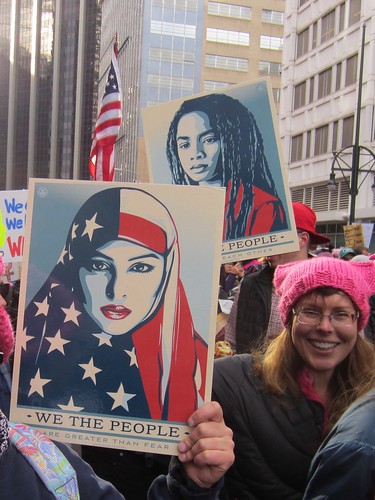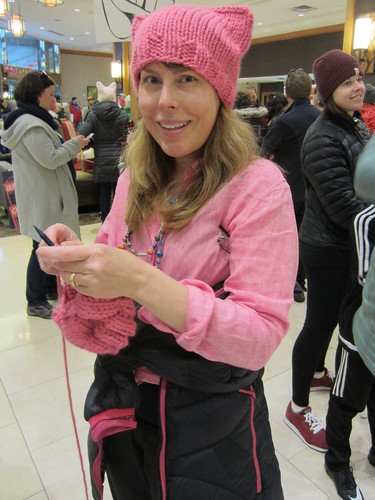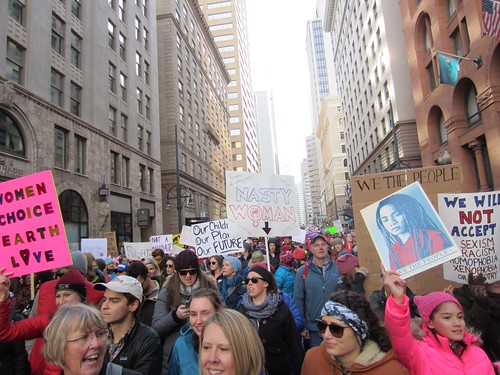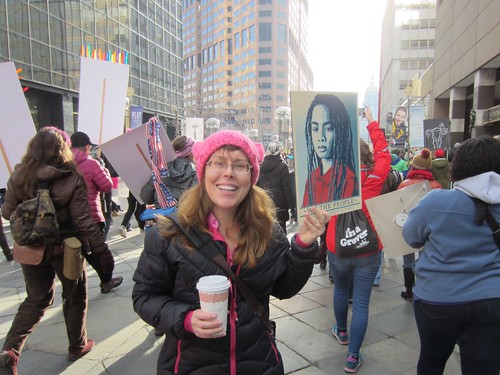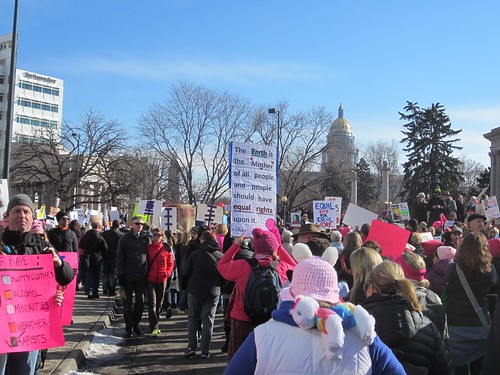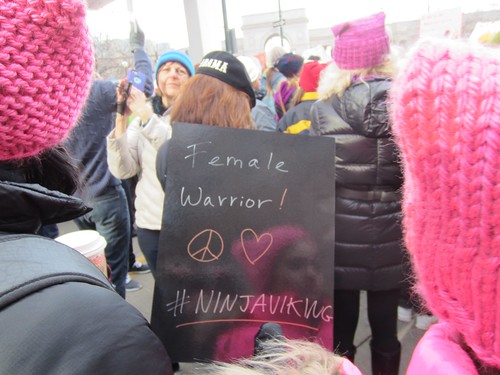Exactly one month ago, I said you would never see me at a march. Far too introverted. That’s what I claimed.
But I was wrong. There, I said it. I was wrong.
Yesterday, to my own surprise, I joined nearly 100,000 people at the Women’s March on Denver. I was initially very nervous about being in such a huge crowd, but I decided I had a duty to represent those who were unable to attend. I must say I felt almost at home when I saw a man carrying a sign that read: “So bad even introverts are here.”
I knitted nine pink Pussy Hats for the march, finishing the last one just minutes before the march began. I gave it to the woman standing behind me in the line for hot chocolate; she had a homemade sign that said “This Muslim loves America.”
(I was in such a hurry to finish the last Pussy Hat, I didn’t have time for a three-needle bind off, so I just threaded the loose ends through the top, snipped off the tail without weaving it in, and handed it over. As they say, the perfect is the enemy of the good.)
The march was peaceful, joyous, and uplifting. It was like nothing I’ve ever experienced. We carried beautiful Shepard Fairey posters and proudly wore pink hats. Our small team, representing three religious traditions, included two white men, two women of color, and a newly minted U.S. citizen. We joined people with disabilities, families with children, a man holding a sign denouncing rape culture, and so many others.
Why the pink hats? Pink is a gentle, nonthreatening color associated with little girls, whose opportunities we support, while the “pussy” ears are a playful rebuke to the president, whose use of the word suggests a profound disrespect for victims of rape and abuse.
Why were we marching? The organizers for the Women’s March on Washington have published a good set of unity principles, beginning with this succinct summary:
We believe that Women’s Rights are Human Rights and Human Rights are Women’s Rights. We must create a society in which women – including Black women, Native women, poor women, immigrant women, disabled women, Muslim women, lesbian queer and trans women – are free and able to care for and nurture their families, however they are formed, in safe and healthy environments free from structural impediments.
For my part, I want to support every woman’s right to safe and affordable healthcare, including family planning and reproductive health. I want to support equal rights and protections for the gay and lesbian (LGBTQIA) community. I really believe that if we stand together as a nation, we can prevent violence against women and minorities, protect the vulnerable, and help build a more inclusive society.
Marching doesn’t change the world: deliberate and consistent political action does. But marching does provide encouragement and support to our fellow Americans: it galvanizes those who are disheartened; it uplifts those who are marginalized. It’s not an end in itself: it’s a place to start.
